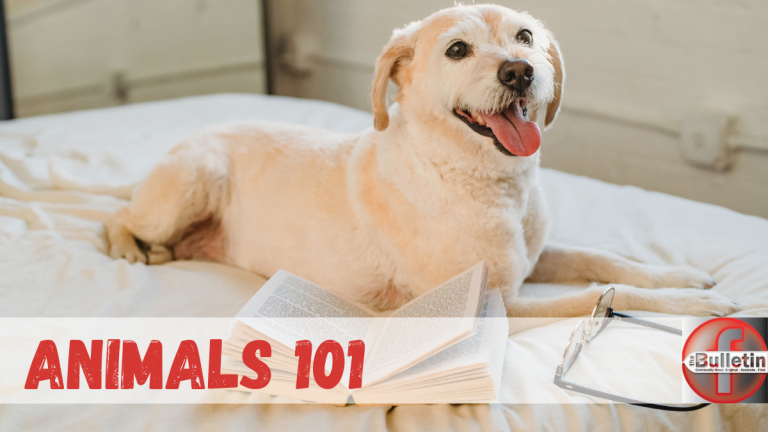
THE HARSH REALITY OF PARROT OWNERSHIP IS THAT MOST OWNERS ARE NOT FULFILLING THEIR NEEDS!
How do you not understand that parrots are not just beautiful, exotic pets to show off, but highly intelligent, emotionally complex creatures that require constant care and a lifetime commitment? Parrots are not meant to be kept in small cages, ignored, fed terrible diets, and neglected while their basic needs go unmet. Too many people take on the responsibility of owning a parrot without the slightest clue about what it truly takes to care for one of these incredible creatures. We see the birds pay the price!
Parrots are wild animals, not just pets. They live for decades—sometimes over 50 years—and during that time, they need a variety of things to thrive. The idea that a parrot can be happy in a small cage with a few seeds and no stimulation is not only wrong, it’s cruel. If you’re one of those people who thinks that keeping a parrot in a cage all day is acceptable, I’m here to tell you—it’s not, and you are failing the animal.
THE CAGE IS TOO SMALL
Let’s start with a basics one: the size of the cage. Parrots are flight animals. In the wild, they fly long distances daily, exploring, foraging, and interacting with their environment. A cage, no matter how large, is not enough. Birds must be able to stretch their wings, fly, and explore outside the confines of their cage as well as get some sunlight. Yet, many parrot owners trap their birds in cages so small that the parrot can hardly move properly, let alone engage in natural behaviours like flying or climbing.
A small cage is a physical and mental prison for a bird. The cramped space leads to frustration, aggression, and depression, and many harmful behaviours. A parrot needs space to move and freedom to fly. If you don’t have the space to let your parrot fly, then you shouldn’t have one at all.
Birds fly horizontally, so vertical cages pose another problem. Read more on cages here.
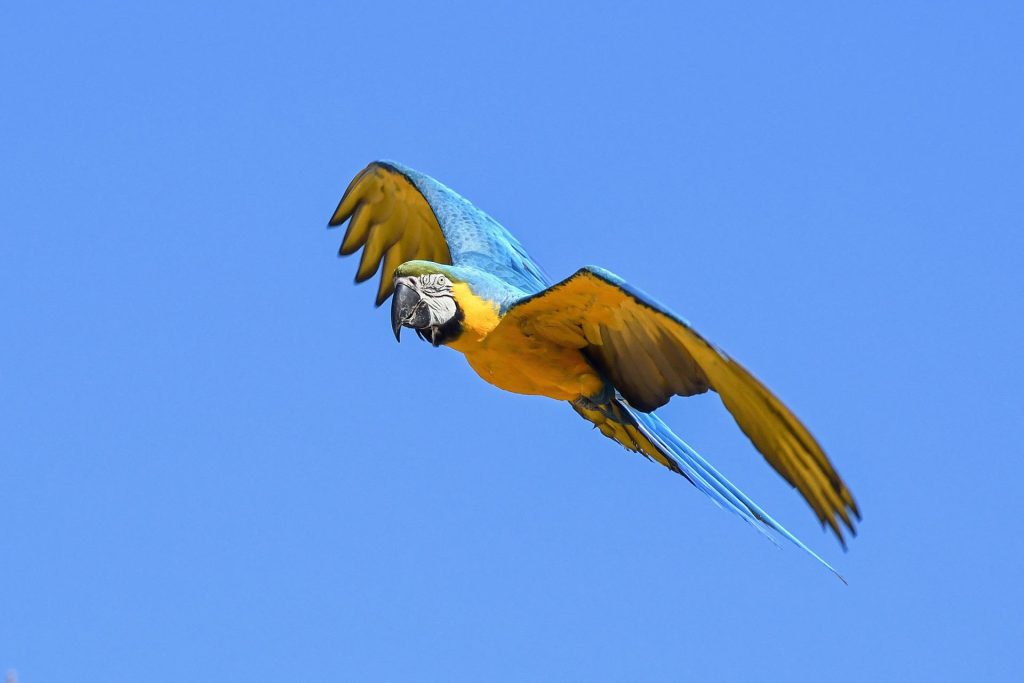
THE LACK OF ENRICHMENT
Next, we get to the issue of enrichment. Parrots are highly intelligent animals, capable of solving complex problems, mimicking human speech, and learning tricks. Yet, they are often left in cages with no toys, no puzzles, and no opportunities to engage their minds.
Parrots in the wild are constantly challenged: they have to find food, navigate their environment, and interact with their flock. In captivity, when these birds are deprived of mental stimulation, they develop boredom and behavioural problems like feather plucking, screaming, and destructive behaviour.
Read more on perches and enrichment ideas.
If you’re leaving a parrot in a cage with only a couple of poorly chosen toys—maybe a swing or a mirror—then you’re doing it all wrong. Birds need variety: toys to chew on, puzzles to solve, and foraging opportunities to stimulate their natural instincts. And these toys need to be rotated regularly (almost daily)—parrots don’t stay entertained by the same thing day in and day out. If you’re not providing your bird with these essential forms of stimulation, you’re neglecting one of their most basic needs.
Also, see our article on aggressive behaviour in dogs.
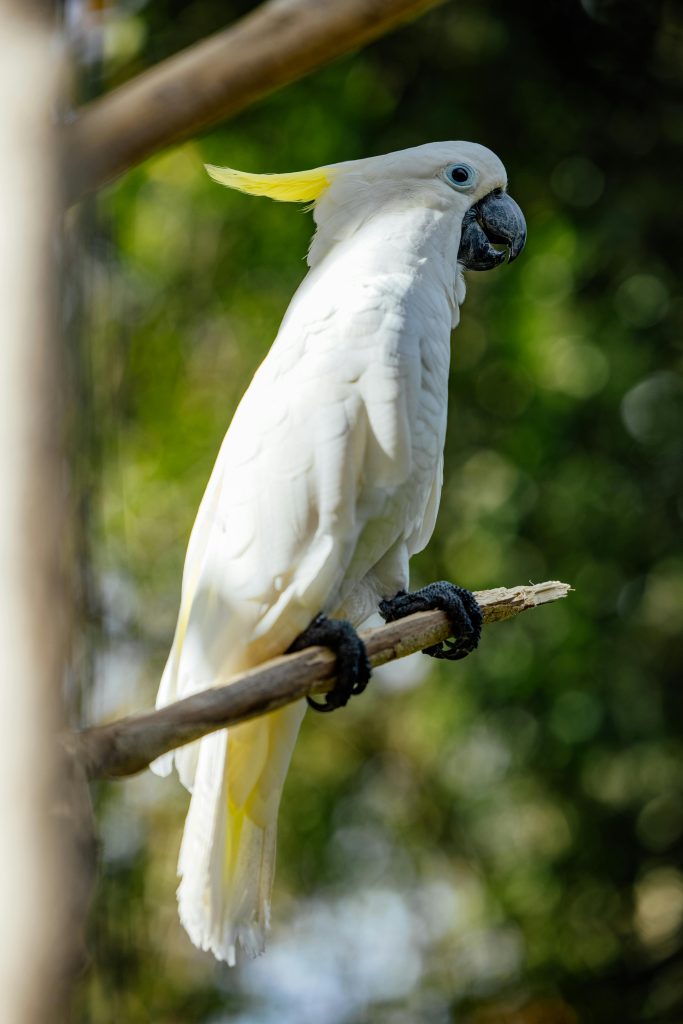
THE DIET CRISIS
You might think you’re feeding your parrot well by giving it sunflower seeds. Think again. The majority of commercial bird seed mixes are high in fat and nutritionally inadequate. A diet of mostly sunflower seeds can cause obesity, liver disease, and heart problems in parrots. Birds need a balanced diet that includes fresh fruits, vegetables, grains, and specialized pellets designed to meet their nutritional needs. If you are not willing to make them fresh food daily, then you are failing them.
By feeding them an improper diet, you’re not only robbing them of the opportunity to thrive—you’re setting them up for health problems that could drastically shorten their lives. And let’s not even mention how many people don’t offer their birds clean water, fresh food, or even properly cleaned dishes daily.
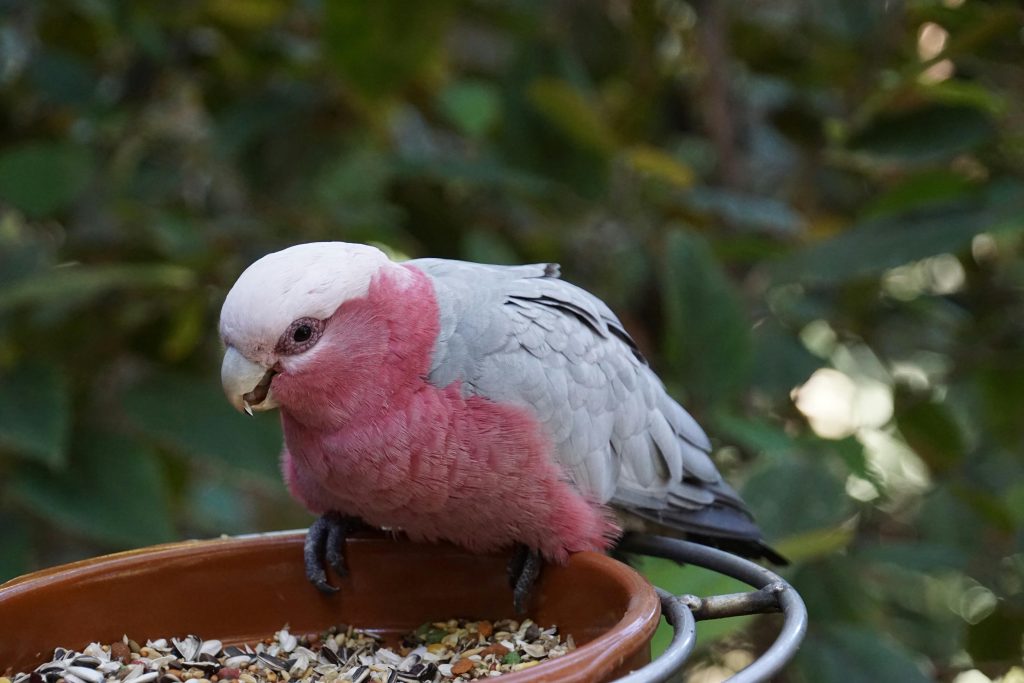
THE EMOTIONAL ISOLATION
Parrots are social animals, and in the wild, they live in flocks. They communicate with each other, they play, and they take care of one another. But in captivity, many parrots are kept isolated in cages, often without any opportunities to interact with other birds. While some may bond with their human owners, this is no substitute for the natural social structure they need.
Isolation leads to emotional stress and behavioural issues. Birds deprived of proper socialization can become aggressive, withdrawn, or excessively noisy. It’s not enough to just put a parrot in a cage and throw a bit of food at them. They need attention, companionship, and regular interaction with both humans and, ideally, other birds. If you can’t offer that, you should reconsider owning a parrot.
THE IMPORTANCE OF VETERINARY CARE
When was the last time you took your parrot to the vet? I’m not talking about a quick checkup every few years—I mean regular visits to ensure your bird is in good health. Far too many parrot owners skip the vet entirely. Birds are experts at hiding illness, and by the time symptoms become visible, it’s often too late. Regular checkups are essential to catch problems early, and a responsible owner should be proactive about ensuring their bird’s health.
In addition to routine vet visits, parrots need vitamins, deworming, and disease prevention. Yet, many parrot owners neglect these basic health needs, leaving their birds vulnerable to illness and suffering.
It is important to see an Avian veterinarian, who specializes with these creatures. Not all vets know enough about parrots.
If you have a parrot, read the missing parrot guidelines before you need it!
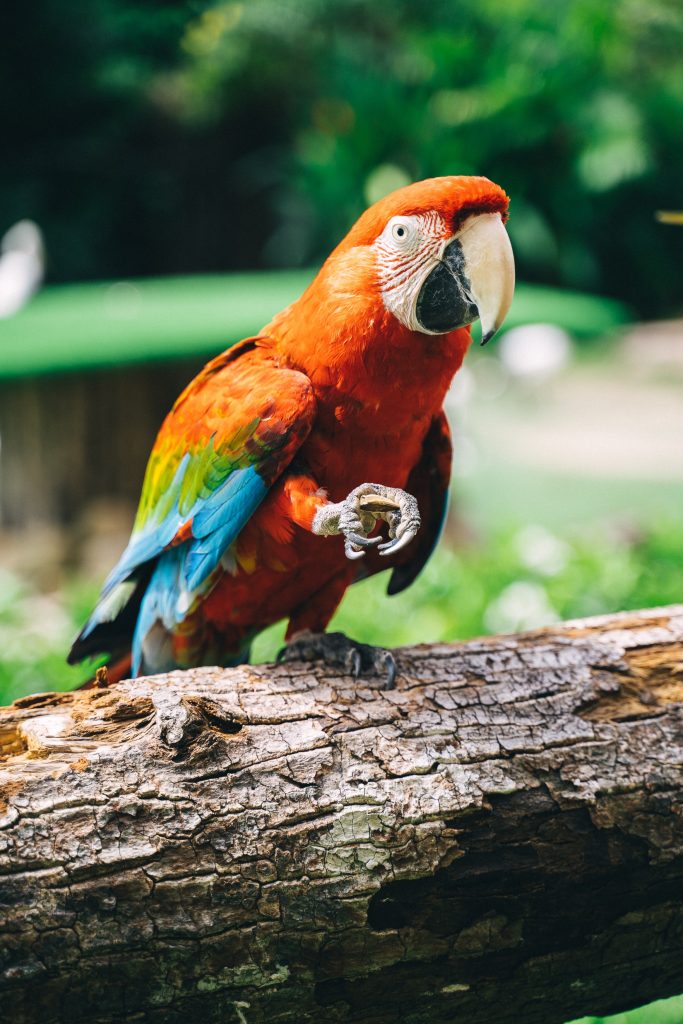
THE BOTTOM LINE: ARE YOU READY FOR THE COMMITMENT?
Parrots are not pets for the faint of heart. They are a 40+ year commitment, and if you can’t meet their needs, then you shouldn’t have one. Parrots are not toys, not accessories to show off, and not status symbols. They are living, breathing, feeling creatures that deserve to be treated with the utmost care and respect. If you are planning to get a parrot, read this, volunteer at a parrot rescue like Brainy Birds – Parrot Rescue and Rehabilitation (consider donating to their work), and talk to our local parrot educator Shy first!
If you can’t provide your parrot with enough space, enrichment, socialization, proper diet, and medical care, then don’t get a parrot. There are far too many parrots suffering in silence because their owners didn’t think through the enormity of the commitment. Birds, big or small, are not good pets for children.
Do better. Don’t take on the responsibility of an animal unless you can meet all of their needs. Stop buying parrots on a whim or because they look cute. They deserve so much more than what you’re giving them. Stop buying parrots for you aged parents!
If you can’t commit to giving your parrot a life of freedom, care, and love, then perhaps it’s time to consider a different kind of pet—one that’s better suited to your lifestyle. But if you are ready to make the lifelong commitment, then step up and provide your bird with the life it deserves. Also, make sure they are provided for in your Will!
Shy is our local parrot educator, who helps with healthy diet changes and enrichment, and arranges for the Avian vet to visit Secunda, hosted by Vetcross Eendedam. Please contact her for guidance on your parrot care. 083 6539755. You can also follow The Paw Company and search #parrot or #bird on the page for many educational posts.
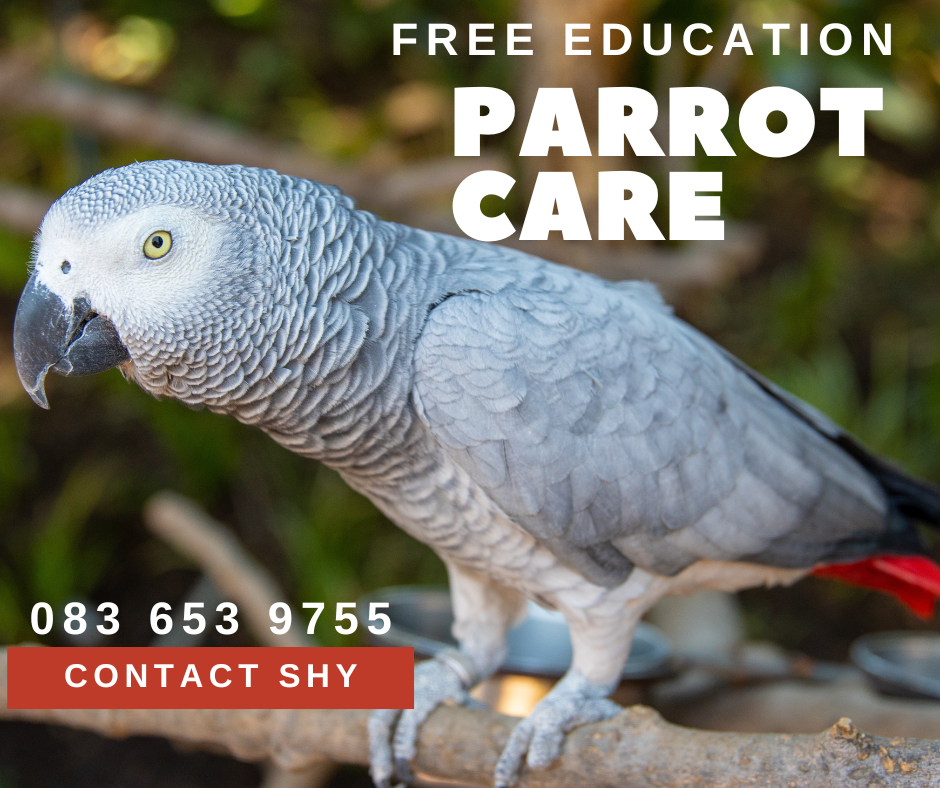
If you can no longer or properly care for your bird, consider surrendering the bird to a parrot rescue. Shy will advise on this. Do not just give the bird, but donate to the organization that is cleaning up your mess.
Join us again next week as we learn about the pets of our lives.